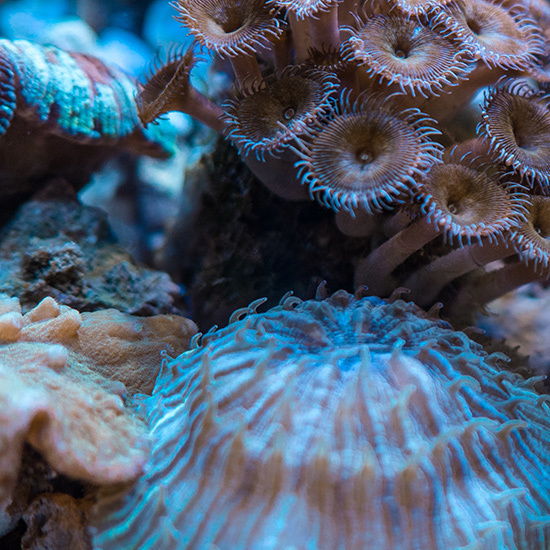
Protect Coral Reefs from Harmful Sunscreens in National Marine Sanctuaries
Our reefs are under assault. While some threats like the warming and acidification of the ocean are global in scale and complicated to solve, the threats posed by oxybenzone and octinoxate are local and immediately preventable. Support HR 1834 to protect coral reefs in our National Marine Sanctuaries from harmful sunscreen chemicals.
Coral reefs are on of the most valuable marine ecosystems on our planet. They provide essential feeding grounds, nurseries, breeding areas and general habitat for thousands of marine species. They also provide billions of dollars in economic benefits, protecting beaches and developments from exacerbated erosion during storm events, and support hundreds of commercially-important fish species.
Yet our reefs are under assault. While some threats like the warming and acidification of the ocean are global in scale and complicated to solve, the threats posed by oxybenzone and octinoxate are local and immediately preventable. Studies show that these chemicals cause great harm to reefs by impacting hormone regulation, damaging coral DNA, causing mortality in developing coral, reducing coral reproduction and contributing to coral bleaching. These chemicals also reduce the immunity and resiliency of corals, making them more vulnerable to disease and other hazards. Learn more here.
It's estimated that up to 14,000 tons of suncreen enter our marine environments each year, both directly from beach-goers and indirectly from wastewater treatment plants. When we shower after a day at the beach or being outside, the chemicals in our sunscreen and personal care products wash down the drain, often right through the wastewater treatment plant, and get released with treated water downstream or at the coast.
In addition to impacts to coral reefs, studies have found that these chemicals are also harmful to fish, marine invertebrates, marine mammals and potentially even human health! The FDA is recommending that oxybenzone and octinoxate, among other harmful chemicals, get recategorized at Category II Substances, making it harder for skincare companies to include them in over-the-counter sunscreen products.
In the past two years, the State of Hawaii, City of Key West, and multiple island nations and territories have taken important steps to protect their local reefs by banning the sale of sunscreens that contain oxybenzone and octinoxate. All of our nation’s reefs deserve this level of protection. Help us pass the bipartisan bill H.R. 1834, Defending Our National Marine Sanctuaries from Damaging Chemicals Act, to protect National Marine Sanctuaries containing coral reefs from these unnecessary, harmful chemicals.
H.R. 1834 was introduced in the House by Congressman Francis Rooney (representing Florida's 19 district) to “direct the Secretary of Commerce to issue regulations prohibiting the use of sunscreen containing oxybenzone or octinoxate in a National Marine Sanctuary in which coral is present, and for other purposes”. It is currently under review by House Subcommittee on Water, Oceans, and Wildlife. Banning harmful sunscreen chemicals from National Marine Sanctuaries will help protect these national treasures, and expand a growing awareness on the dangers of popular sunscreen chemicals.
There are hundreds of other sunscreen options available that do not contain oxybenzone and octinoxate. There is no need to expose ourselves and our marine life to these harmful chemical sunscreens. Learn more about reef friendly sunscreen options here.
Take Action Today
- Sign our Business Letter to Protect National Marine Sanctuaries from Harmful Chemicals - if you own or manage a business, please sign on behalf of your company to show industry support for this bill! Many skincare companies are working tirelessly to claim that this bill is not supported by the private sector, let's prove them wrong.
- Click here to ask your elected official in the House of Representatives to support HR 1834 to protect our reefs.
